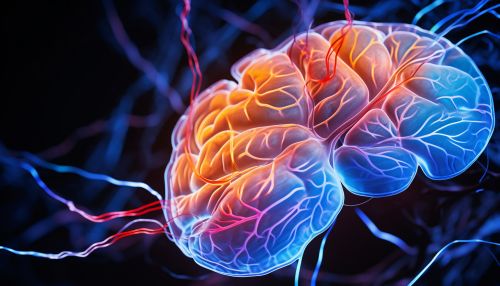Cognitive Neuroscience of Cognitive and Social Functioning
Introduction
Cognitive neuroscience is a branch of neuroscience that explores the biological processes that help us to understand complex cognitive and social behaviors. This field combines the principles of neuroscience and psychology to study how the brain enables the mind. Cognitive neuroscience has a broad scope, encompassing various aspects of cognitive and social functioning.
Cognitive Functioning
Cognitive functioning refers to a range of high-level brain functions including learning, thinking, reasoning, remembering, problem-solving, decision making, and attention. Cognitive neuroscience seeks to determine how these functions are produced by neural circuitry and systems.
Memory
Memory is a critical aspect of cognitive functioning. It involves the encoding, storage, and retrieval of information. Cognitive neuroscientists study different types of memory, such as short-term memory, long-term memory, and working memory, to understand how they are represented and processed in the brain.
Attention
Attention is another crucial aspect of cognitive functioning. It refers to the cognitive process of selectively concentrating on one aspect of the environment while ignoring other things. Cognitive neuroscientists study the neural mechanisms that underlie attention, including the brain regions and networks involved in attentional control.
Decision Making
Decision making is a complex cognitive process that involves choosing between multiple options or courses of action. Cognitive neuroscience research has revealed that decision making involves a network of brain regions, including the prefrontal cortex, the anterior cingulate cortex, and the parietal cortex.
Social Functioning
Social functioning refers to an individual's ability to interact effectively with others in various social contexts. It involves a range of cognitive processes, including social cognition, emotion recognition, theory of mind, and empathy.
Social Cognition
Social cognition involves the mental operations that underlie social interactions, including perceiving, interpreting, and generating responses to the intentions, dispositions, and behaviors of others. Cognitive neuroscientists study how the brain processes social information, with a particular focus on the role of the prefrontal cortex and the amygdala.
Emotion Recognition
Emotion recognition is the ability to identify and understand others' emotions. It is a crucial aspect of social functioning, as it allows individuals to respond appropriately to the emotional states of others. Cognitive neuroscience research has shown that emotion recognition is associated with several brain regions, including the amygdala, the orbitofrontal cortex, and the right hemisphere's superior temporal sulcus.
Theory of Mind
Theory of Mind is the ability to attribute mental states—beliefs, intents, desires, emotions, knowledge, etc.—to oneself and others and to understand that others have beliefs, desires, and intentions that are different from one's own. Cognitive neuroscientists study the neural basis of Theory of Mind, with a focus on the role of the medial prefrontal cortex, the temporoparietal junction, and the superior temporal sulcus.
Empathy
Empathy is the ability to understand and share the feelings of others. It is a key aspect of social functioning, as it facilitates social communication and promotes prosocial behavior. Cognitive neuroscience research has revealed that empathy involves multiple brain regions, including the anterior cingulate cortex and the anterior insula.


Conclusion
Cognitive neuroscience provides a framework for understanding the neural mechanisms underlying cognitive and social functioning. By studying the brain's structure and function, cognitive neuroscientists can gain insights into the complex cognitive processes that enable us to think, learn, remember, make decisions, and interact socially.
